- Home
- JoAnn Ross
Castaway Cove Page 2
Castaway Cove Read online
Page 2
As disoriented as he was, one searing thought flashed through Mac’s mind. Please, God, let my brain not be permanently scrambled.
“Okay,” he repeated, flinching as he turned his head to try to look around.
His left eye seemed to have been flash-blinded, while the vision in his right was hazy, but that didn’t keep him from seeing that the explosion had ripped through the heart of the market, clearing a wide swath. At the periphery, burned and bloody bodies were piled up like so much cordwood.
He heard the cries and moans, but was grateful that along with the obnoxious ringing in his ears, whatever had happened to his hearing made the voices sound distant, like when his grandfather had taught him to listen to the sound of the sea inside a conch shell.
A mob of distraught people was rushing toward the scene, trying to dislodge the bodies, desperately searching for the living.
The Airman and her cameraman lifted him up and ran toward the MRAP vehicle.
He had wanted to assure them that he was fine, that they should leave him and go help the civilian women and children, when his right eye caught sight of what appeared to be a small arm wearing Cub Scout blue stretching out from beneath a jumble of human pickup sticks.
As he felt himself being carefully placed into the vehicle, a burning pain began washing over him in hot waves. Even as he fought against it, as the MRAP roared away, horn blaring loudly enough that even he could hear it, Mac surrendered to the darkness.
• • •
After having shrapnel painstakingly picked out of his arms and legs, and being treated for second-degree burns by the medical crew, he was airlifted from Bagram to Landstuhl Regional Medical Center in Germany.
“So, here’s the deal,” the doctor, a captain from next-door Ramstein Air Base, told him. “You were lucky.”
The weird thing was that although every part of him hurt like one of the lower circles of hell, even through the IV drugs they were pumping into him, Mac knew she was right.
At least he was alive, unlike the Afghan translator he’d worked with for the past eight months, or the newspaper reporter, who’d had the bad luck of joining the growing ranks of journalists killed while covering the war.
“You’ve got lacerations on your chest and arms, and shrapnel in your thighs, legs, and shoulders, but fortunately your helmet, armor, and fire-retardant uniform prevented serious injury to your body.”
“What about my eyes?” Which were currently wrapped in sterile gauze.
“It’s too early to tell.” Mac listened for optimism in the female doctor’s tone, but heard only exhaustion. “But they’re intact. Which is really amazing, given how close you were to the blast, even with your ballistic goggles, which I heard were toast.”
“I should’ve seen it coming,” he muttered.
“Yeah, with your X-ray eyes and superhero powers,” she said dryly. “I know it’s difficult for you warriors to get it through your heads, but you are, when it comes right down to it, human beings. Like the rest of us.”
“I’m not a warrior. I’m just the guy on the radio.”
He’d always been aware that his job was a walk in the park compared to those of so many others he’d served with. The troops worked damn hard, some risking their lives every minute of every day. His job, as he viewed it, was to always be there for them. To provide a little bit of home and bring some semblance of normal to a life that was anything but.
“Yet you were blown up, which I doubt would’ve happened if you’d chosen to remain a civilian deejay working in Albuquerque or Topeka.”
Despite the pain, Mac smiled at that. “And how boring would that be?”
“Just what I need. Another adrenaline junkie.” She sighed as she pulled back the sheet and began examining his wounds.
“Explosions can work in inexplicable ways,” she said. “We never know what we’re going to be looking at when we get the call for incoming.
“At the instant of detonation, shrapnel and heat rush out at supersonic speeds. They should have been picking pieces of you out of the dirt into the next century. But there’s no order to explosions. Some areas are thick with shrapnel. You could have just as easily been cut in half by a door or the hood of the truck that suicide bomber set off. But you happened to be standing in a partial seam that was empty of any lethal debris.”
Unlike his translator and the reporter. Mac knew that if he lived to a hundred, he’d never be able to unsee the images of the bombing’s aftermath.
“The surgery released the swelling in your brain,” she continued. “We’ll keep an eye on you for a couple more days, to make sure you’re out of the woods, then ship you back to CONUS for continued treatment.” CONUS being military-speak for Continental United States. “Your liaison will be visiting as soon as I leave, but wanted you to know that your father called. My suggestion, not that you asked, is unless you feel you need immediate family support, it makes more sense for him to meet up with you at Travis, where you’re ultimately headed.”
“I’m fine,” Mac lied, as he had been doing since he’d found himself lying on the ground surrounded by chaos. “If I’m only staying a couple days, there’s no point in having him fly all the way here, only to turn right around and fly back again.”
“That was my thinking.”
Mac debated asking if his wife had called. But he figured the doctor would have mentioned it if Kayla had felt moved to contact the hospital.
Maybe his father filling her in was enough. Perhaps she was still speaking to her father-in-law, even though she hadn’t e-mailed or Skyped Mac for three months.
Two days later, he left Germany, spending a one-night layover at Andrews Air Force Base in Maryland before continuing on to David Grant USAF Medical Center at Travis Air Force Base in California.
His father was waiting there for him.
His wife was not.
Three weeks after his arrival at Travis, two weeks after he’d begun climbing the walls, he was transferred to outpatient status.
Although the bandages had been removed, his vision was still blurry. The retina tear on his left eye had been repaired and the doctors assured him that with a cornea transplant, his right eye should be as good as new.
His father had wanted to accompany Mac to Colorado Springs, where Kayla, having landed a part-time job as a Saturday news anchor, had moved with their daughter, Emma.
Not knowing what type of reception he’d receive, and needing to concentrate on repairing his wounded marriage, Mac insisted on going alone.
His wife had a right to be pissed, since after promising her that he would come home he’d reenlisted yet again. Mac realized that he was going to have to pull off some serious groveling to repair his fractured marriage.
2
From the stilted phone conversations they’d shared while he’d been at Travis, he wasn’t surprised when Kayla didn’t show up to greet him at the airport. He gave the cabdriver the address of the house he’d never seen, then sat in the backseat, practicing what he was going to say that might make things right again.
The neighborhood was typical of American suburbs, with neatly trimmed front lawns and tidy houses on either side of a street lined with trees that blazed with fall color. Even through his still-blurred vision, the high blue Colorado sky and red, yellow, and bronze leaves on the trees seemed blindingly bright after Afghanistan’s unrelenting brown.
Most of the houses were flying the American flag, which was to be expected in a city that was home to the Air Force Academy. Mac couldn’t help noticing that the flag flying from the front porch of the white rambler the cabdriver had pulled up in front of was not the Stars and Stripes, but a banner that boasted three fall-themed pumpkins.
He rang the bell, then waited for what seemed an eternity.
“Hi.” His wife’s tone, when she did finally open the door, wasn’t angry, as it had bee
n the last time they’d spoken in person. Nor was it the least bit welcoming. What it was, he decided, was disinterested.
“Hi,” he said back, standing there, holding his duffel bag while she subjected him to a slow examination.
“You look good,” she said. Since his mirror revealed that he was gaunt and gray, and sported a bald spot where they’d shaved his head for surgery, Mac translated that to mean that he didn’t look nearly as bad as she’d expected.
“So do you.”
It was the truth. She looked much the same. But different. Her long, straight slide of chestnut hair had been cropped to chin length, now a blazing mahogany that echoed the leaves of the tree on the small front lawn, and the snug purple sweater and skinny jeans revealed that although she’d always claimed to hate exercise, she’d been working out. A lot.
Silence settled over them as they stood there, she inside the ranch-style house, he on the narrow front porch. The only sound came from the blower the elderly man across the street was using to attack a mountain of leaves.
He glanced past her. “Where’s Emma?”
“At a neighbor’s.” The unfamiliar glossy bright hair swung as she tilted her head toward the house next door. “You can make up for all the parenting time you’ve lost later. Right now, I thought it would be better if she wasn’t here for this long-overdue conversation.”
Mac’s internal siren, which had failed to go off when the suicide bomber had driven his jingle truck into the marketplace, began to sound. But feeling the leaf guy’s eyes on them, he wasn’t going to stand out here in public and point out that the child Kayla was referring to was his child, too. Ever since waking up to find himself in the Bagram ER, he’d gotten through the pain, stress, and guilt by staying focused on getting back home and holding his daughter in his arms.
Although patience had admittedly never been his strong suit, Mac held his tongue and refrained from starting yet another argument as he walked into the small foyer.
Where the flowered suitcase sitting by the front door suggested that whatever conversation he and his wife were about to have was probably not going to go his way.
3
“So,” Mac asked, with a casualness he hoped would conceal the IEDs going off inside him, “are you taking a trip?”
Her eyes had gone from disinterested to sad. But he recognized the glint of determination in them as well. “I’m leaving.”
“Can we talk about it?”
His shrapnel-riddled leg was aching, but since she hadn’t invited him to sit down after leading him into the living room, he remained standing. It didn’t escape his notice that the living room of the rented house didn’t have a single personal item in it.
She shrugged. “What’s to talk about? We’ve been over this again and again, Mackenzie. Ever since you decided to go off to play war.”
The scorn in her tone hit a hot button, but rather than get into an argument about the fact that no one in a war zone was playing at their job, he didn’t jump at the bait he suspected she’d thrown out there just to get a rise out of him.
“You broke your word to me. Yet again.” She folded her arms beneath her breasts, which, perhaps because she was so toned, seemed larger than they’d been. Or maybe, along with changing her hair, she’d gotten implants.
Not a good sign.
“I’m not going to argue that.” Since it was true. “Does the fact that I honestly intended to leave the Air Force count for anything?”
“Only if you had left. Which you didn’t.”
Frustration rushing through him despite his exhaustion, he raked a hand through his hair, flinching as it hit on the stitches that had him looking like Frankenstein’s monster. They’d been due to come out today, but since she hadn’t shown up in California and he didn’t want to let things go further downhill, he’d come to Colorado Springs, hoping to make things right.
“I’m sorry. You’re right. I broke a promise.”
He paused, waiting for her to accept his apology. When the silence yawned between them, a deep and foreboding chasm, he forged on.
“But it’s a moot point, since my military career is pretty much washed up.”
It needn’t be that way. He had done stories on soldiers who’d returned downrange after being wounded. A Marine sniper who’d lost an eye had sworn he could aim better with one. Others had lost legs, including an Army helicopter pilot who returned with ones he claimed were better and stronger. Like a real-life Six Million Dollar Man.
But while lying in that bed in Germany, Mac had realized how close he’d come to dying. Which probably wouldn’t have been any big deal for him, because he’d be dead and wouldn’t be around to throw himself a pity party.
But the unappealing fact that had come crashing down on him was that many of the accusations Kayla had thrown at him like Molotov cocktails over the years were true. He’d been driven by ambition and selfishness as much as by patriotism or duty. And by enjoying being at the top of his game, the guy with a worldwide audience, he’d nearly left his daughter without a father.
“So you only came here because you’ve nowhere else to go?” she countered.
“No. I came here because I want us to be a family. Which we haven’t been for a long time.”
“And whose fault is that?”
“Totally mine.” Not that she’d been a saint. But even though he might be clueless when it came to reading women’s minds, Mac knew this was no time to start comparing personal faults. Especially since he couldn’t deny leaving her alone for so much of their marriage. “That’s why I’m willing to do whatever heavy lifting it takes to make things work.”
“Heavy lifting,” she murmured, suggesting that she wasn’t exactly enamored of the term he’d chosen. Her gaze drifted out the window. She dragged a hand through her hair. For a brief, suspended moment, Mac thought he felt an encouraging bit of indecision.
“You look like shit,” she said finally, turning back to him. “Sit down before you fall down. I need to make a call.”
With that she left the room.
Since he felt about as bad as he probably looked, Mac lowered himself into a flowered wing chair and stretched his stiff, aching leg out in front of him. And waited.
Early on in his radio life, he’d developed an internal clock that kept him from accidentally ending up with one of the things every deejay dreaded . . . dead air. Which was why he knew she was back in just under five minutes.
“I’m honestly sorry, Mac.” She’d dropped the “Mackenzie,” which she only used when she was pissed. Her tone, lower and less acidic, sounded as if she was speaking the truth. But her expression suggested that anything he might be about to say was too little, too late. “About what happened to you. And what happened to us.” Her fingers slid through that unfamiliar glossy red hair again. “But I’m done.”
He didn’t need to be able to read his wife’s mind to know she was telling the truth. At least what she thought was the truth. He could win her back.
Somehow.
“Where are you going?”
She paused. Just long enough to have him thinking that she’d prefer him not to know.
Then she shrugged. “You know I’ve wanted out of entertainment news, but I kept finding myself typecast in California. Ironically, you being in the Air Force helped me land this job, which was a good way to break in. Meanwhile, I’ve been sending out tapes and was offered a morning news anchor spot in Phoenix.”
Even as he considered that Kayla was proving every bit as ambitious as he’d been, Mac felt a sense of relief. It could work. Phoenix was a big city with a bunch of radio stations. One of them was bound to hire him, especially since there were two air bases outside town that would provide a built-in loyal audience.
“I’ve always liked the desert,” he said. Which had once been true. Before all that time in Iraq and Afghanistan.
“Maybe I haven’t made myself perfectly clear. I’m going to Arizona. You’re going . . .”
She paused, as if realizing that by moving here, she’d essentially left him without a place to live. “Wherever you want.”
“Even if you don’t want to be married anymore, I want to be where Emma is.” Maybe he wouldn’t stay Kayla’s husband, but he’d be damned if he’d give up his parental rights.
“Well, then, you have nothing to worry about. Because I’m leaving her with you.”
“What?” The bombshell hit with much the same force as the explosion in that marketplace. If he hadn’t been sitting down, Mac figured it would’ve staggered him.
“I’ve spent five years being responsible for her twenty-four/seven while you’ve gallivanted around the world playing music on the radio,” she said. “It’s your turn to pick up the slack.”
Mac’s first thought, and it wasn’t a good one, was how she’d so cavalierly referred to their only child as slack.
The second was that just as he wouldn’t have wanted Emma to grow up without a father, surely a daughter needed a mother as much, if not more.
His third thought, and the most unpalatable one, was to wonder what kind of woman could so blithely abandon her own flesh and blood. Maybe she’d changed during their years apart. Or maybe he hadn’t ever really known her.
Maybe he didn’t want to try to fix things after all.
But neither did he want Emma to become collateral damage in the war that her parents’ marriage had become.
“Okay, I get that you’re pissed at me,” he said, trying a new tack.
“Make that fed up,” she countered.
“Roger that.” He got the message loud and clear. “I also understand that it couldn’t have been easy handling everything on your own. But how the hell can you just walk away from our daughter?”
“It’s not as if Emma’s going to end up in some Dickensian orphanage. She has you. I’m not abandoning her, Mackenzie. Obviously she’ll visit me in Arizona. And while our divorce lawyers will have to work out the details, she’ll undoubtedly end up spending much more time with me than she ever has with her own father.”

 Magnolia Moon
Magnolia Moon Summer on Mirror Lake
Summer on Mirror Lake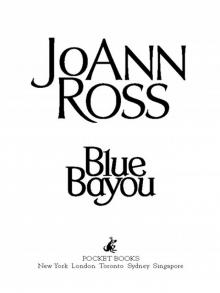 Blue Bayou
Blue Bayou Champagne and Moonlight
Champagne and Moonlight No Regrets
No Regrets Long Road Home
Long Road Home Southern Comforts
Southern Comforts Herons Landing
Herons Landing Untamed
Untamed No Regrets (Mira Romance)
No Regrets (Mira Romance)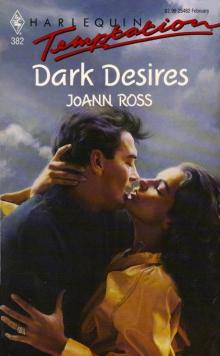 Dark Desires
Dark Desires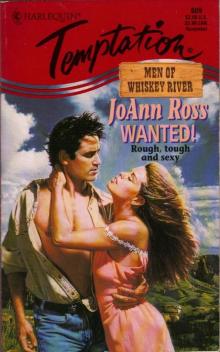 Wanted!
Wanted! River Road
River Road Midnight Runaway
Midnight Runaway The Long Way Back
The Long Way Back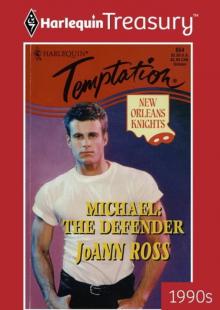 Michael: The Defender
Michael: The Defender Hot on the Trail
Hot on the Trail When I'm With You
When I'm With You Legends Lake
Legends Lake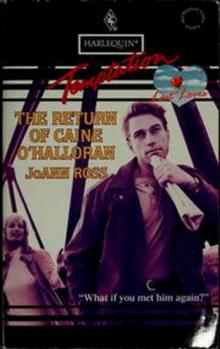 The Return of Caine O'Halloran
The Return of Caine O'Halloran Dance with a Dynasty
Dance with a Dynasty MacKenzie's Woman
MacKenzie's Woman Impulse
Impulse Sunset Point: A Shelter Bay Novel
Sunset Point: A Shelter Bay Novel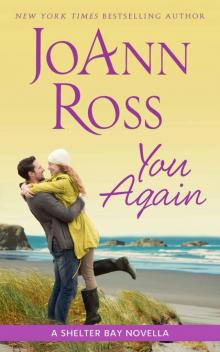 You Again: A Shelter Bay novella (Shelter Bay series Book 8)
You Again: A Shelter Bay novella (Shelter Bay series Book 8)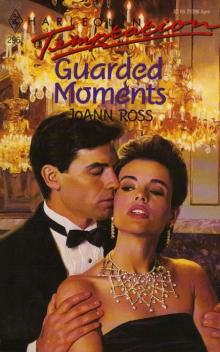 Guarded Moments
Guarded Moments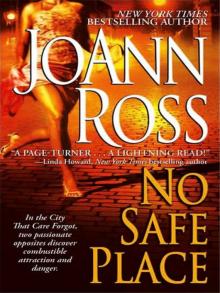 No Safe Place
No Safe Place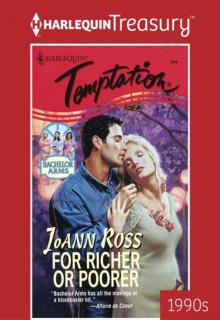 For Richer or Poorer
For Richer or Poorer Private Passions
Private Passions Once Upon a Wedding
Once Upon a Wedding Snowfall on Lighthouse Lane
Snowfall on Lighthouse Lane Christmas on Main Street
Christmas on Main Street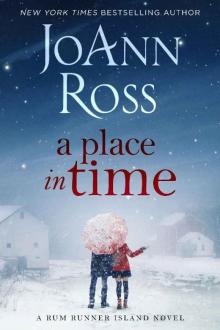 A Place in Time (Rum Runner Island Book 1)
A Place in Time (Rum Runner Island Book 1)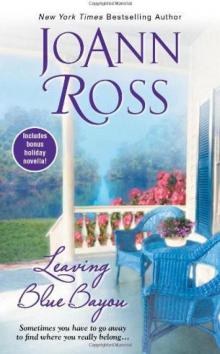 Leaving Blue Bayou
Leaving Blue Bayou The Return of Caine O'Halloran: Hard Choices
The Return of Caine O'Halloran: Hard Choices Lucky in Love
Lucky in Love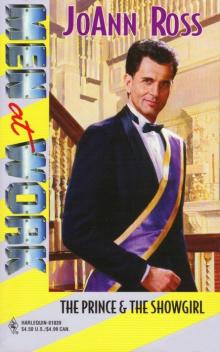 The Prince & The Showgirl
The Prince & The Showgirl Castaway Cove
Castaway Cove A Woman's Heart
A Woman's Heart One Summer
One Summer Ambushed
Ambushed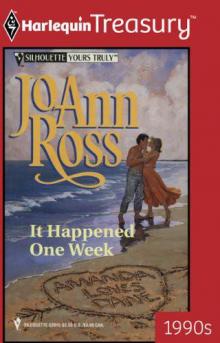 It Happened One Week
It Happened One Week Home by the Sea
Home by the Sea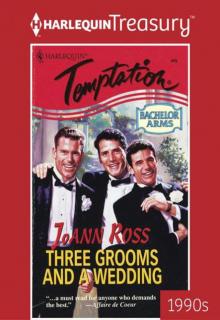 Three Grooms and a Wedding
Three Grooms and a Wedding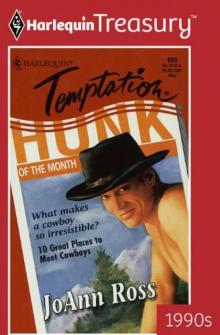 Hunk of the Month
Hunk of the Month Never a Bride
Never a Bride Sun Kissed
Sun Kissed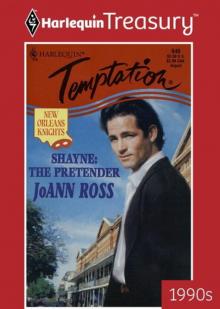 Shayne: The Pretender
Shayne: The Pretender Legacy of Lies
Legacy of Lies Far Harbor
Far Harbor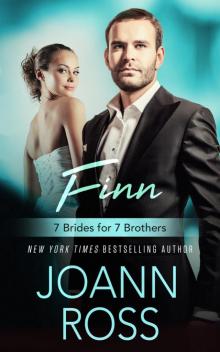 Finn
Finn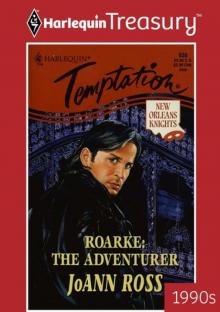 Roarke: The Adventurer
Roarke: The Adventurer I Do, I Do...For Now (Harlequin Love and Laugher)
I Do, I Do...For Now (Harlequin Love and Laugher) Briarwood Cottage
Briarwood Cottage On Lavender Lane
On Lavender Lane Sea Glass Winter
Sea Glass Winter River's Bend
River's Bend Christmas in Shelter Bay
Christmas in Shelter Bay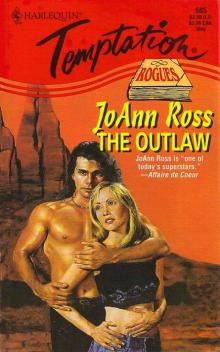 The Outlaw
The Outlaw Castaway Cove (2013)
Castaway Cove (2013) Confessions
Confessions Moonshell Beach: A Shelter Bay Novel
Moonshell Beach: A Shelter Bay Novel